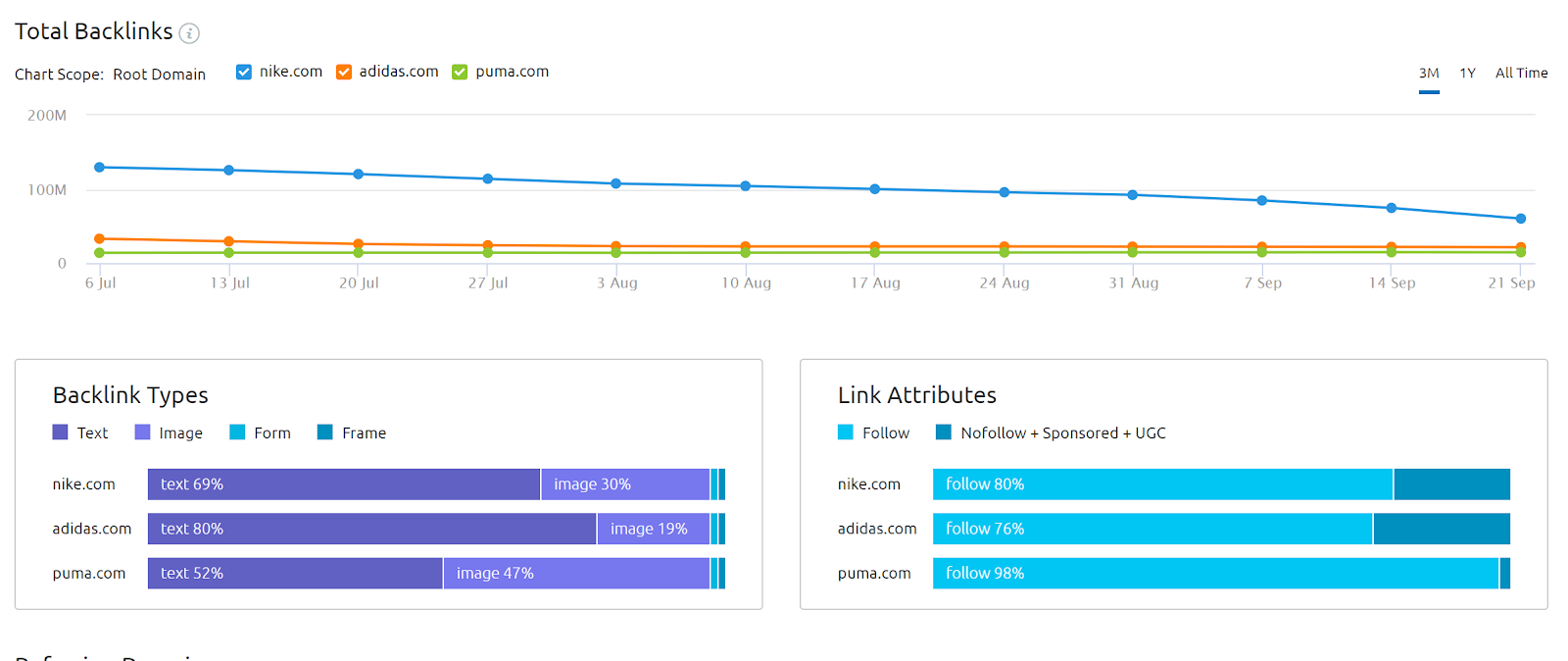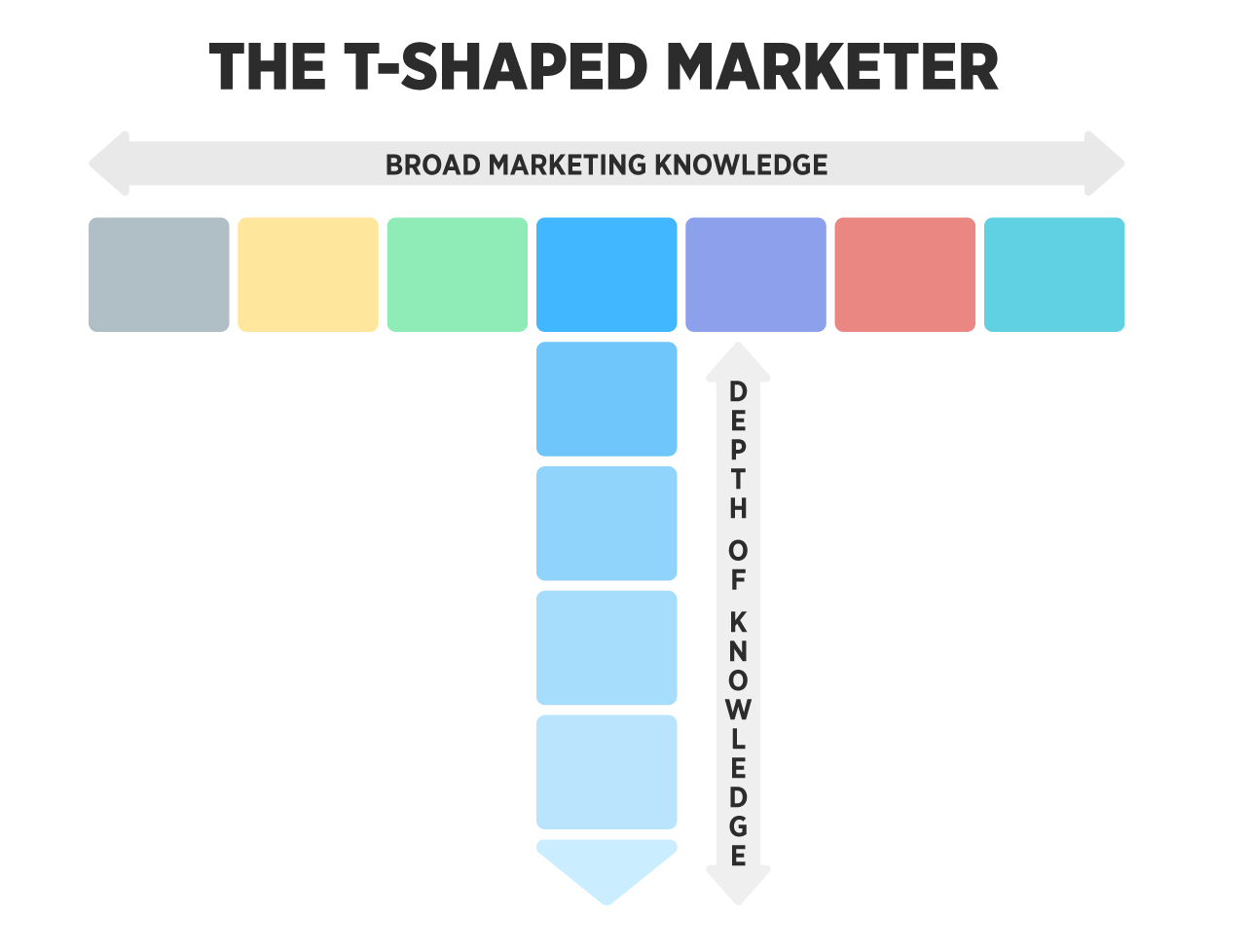By now, anyone who uses the internet has probably heard of SEO. But they might not have a full understanding of what it is or how it works. Essentially, SEO is the art of optimizing the content you publish so that your website turns up higher in search engine results. This means more traffic to your website, more people engaging your brand, and, hopefully, more sales.
SEO is a crucial and complex piece of modern content marketing. Even a little bit of SEO knowledge can have a big impact on your marketing results. After all, 93% of all online activities begin with a search engine. Even more telling is that 75% of those searching for something online never click past the first page of results. So, SEO matters if you want your business to be seen online.
This makes SEO a powerful branding tool. It’s also a rapidly growing field within the digital marketing industry. According to our recent State of Content Marketing Report, 44% of content marketing professionals surveyed say improving their content's SEO performance is one of their company’s top challenges. Additionally, 67% say SEO is the best tactic for improving content performance. And 73% say they use SEO tools regularly to leverage their content marketing efforts.
So, as we move into 2021, those who boast SEO skills are in high demand. But how do you learn these skills? Keep reading to learn how to become knowledgeable in this integral field. This step-by-step guide will set you on the path to becoming an SEO expert. In the guide, we'll go over what you must master to become an SEO expert:
Step 1. Learn How Search Engines Work Step 2. Develop the Core Skills Step 3. Understand How to Run and Present an Effective Competitor Analysis Step 4. Regularly Use and Refine Your SEO Knowledge Step 5. Pick an Area to Hone Your Expertise Step 6. Understand and Perfect How to Track SEO Performance Step 7. Build a Strong SEO Network Step 8. Learn How to Explain SEO to Clients Not Familiar With the Industry An SEO Expert’s Work Is Never FinishedStep 1. Learn How Search Engines Work
People use search engines to look up any number of questions or terms. Your searches could range from “When is daylight saving time?” to “vintage corduroy jackets” to “Where do I vote?” Within fractions of a second, you’ll have your answer. And not just one answer. Your search results will often direct you to scores, sometimes hundreds, of websites related to what you typed in the search engine. But how does it work?
Search engines have three primary functions:
Crawl: Search engines use web crawlers — often referred to as bots or spiders — to navigate the internet, reading content on billions of webpages.
Index: These bots collect and organize the content discovered during the crawling process in a database. Once it’s indexed, these webpages can be retrieved during internet searches.
Rank: Each indexed page is evaluated to determine what it’s about and how relevant it is to each search query. For example, if you live in New York City and search for “independent bookstores,” your search will turn up nearby shops in the Big Apple rather than those in other regions.
Google’s search algorithms consider various factors to return these split-second results for users. Its ranking systems evaluate hundreds of billions of webpages within milliseconds to present you with the most relevant information.
And it all starts with the words you type into the search engine bar. Google’s systems look closely at the words you use, the order they’re in, and even how they’re spelled to determine the most relevant results. For instance, a search for “where to buy a bike” will result in similar but different results from “how to ride a bike.” Its algorithms know how to differentiate between the two despite the similar language involved. It recognizes the keywords used to determine search intent and scours the web for these words on indexed pages.
The search algorithms also rank the quality of indexed webpages before pulling up your search results. Google’s systems are designed to recognize expert information and pages that appear to be an authority on the topics they present. It also tracks webpages visited by others who make similar queries. The goal is to present the most trustworthy webpages high in any search.
Page usability also plays a factor in where it ranks in searches. If it’s difficult to read or navigate, no matter how good its content is, it could turn up lower in a search.
Step 2. Develop the Core Skills
To become an SEO marketing expert, there are several core skills you’ll need to develop to find success in the field. As you learn the tools of the trade, here are several integral skills you should focus on:
Keyword research: You might guess some of the search terms that people use on various topics, but doing your keyword research is crucial to SEO success. By doing your keyword research, you can determine what words people are searching for rather than playing a guessing game. Then, you can use these words in your web content to improve your search rankings.
On-page SEO optimization: This practice optimizes your webpage content to improve your website’s search rankings. Several ways to do this include adding keywords and power words to your content, utilizing metadata, and including title tags.
Coding basics: You don’t need to be a coding expert, but you should be able to look at a site’s source and identify key features (e.g., whether a backlink to your site is a dofollow or nofollow).
Link building/generating backlinks: Link building happens when the content on other websites include hyperlinks to your webpages. These important backlinks provide an air of authority to your website, identifying it as a quality resource, and improving your SEO rankings. If you're looking to find backlinks to your site, you can check out some of the methods we recommend.
Content marketing: Content is huge when it comes to your SEO efforts. Not only do you need to create engaging on-site content, but you also need to be able to produce something people want to link to so that you can generate backlinks.
Content audit: Understanding how to evaluate your content for strengths and weaknesses is key to SEO success. This will allow you to create a plan for improvement.
There are also some less technical skills that will prove to be valuable throughout your SEO career. Some softer skills you’ll want to develop include the ability to communicate clearly, the art of negotiation, or how to find common ground. There are also some tougher scenarios you’ll need to be prepared for, like how to realize when a potential client isn’t the right fit for you or what to do when some of your efforts don’t work (trust us, what works for one client won’t always work for everyone else, so you’ll need to learn how to pivot quickly).
Step 3. Understand How to Run and Present an Effective Competitor Analysis
The top SEO experts will tell you that running an in-depth and effective competitor analysis of websites is just as important to your success as the content you create. In this analysis, you’ll evaluate not only how your own website fares in search rankings but also where your competitors stand.
This will allow you to understand your market better. And by seeing where other businesses in your industry are succeeding, you can determine your own gaps and weaknesses.
These analyses are more complicated than simply looking at your competitor’s search rankings, though.
An effective competitor analysis should include at least the following three areas:
Understand your competitor’s traffic: Using our Traffic Analytics tool, you can make direct comparisons to your competitors’ domains and get a closer look at where their traffic is coming from (e.g., direct, referral, paid, social, and search) along with how many visitors they receive a month (including unique visitors).
Identify keyword targets: An effective Keyword Gap analysis should help you identify low-hanging fruit that will be quick wins for your client. From there, you’ll also want to discover which keywords your competitors are ranking for and where you’re dropping the ball entirely. Our tool allows you to compare and visualize the keyword data for up to five competing URLs.

Find the top sources for backlinks: Another way to get an edge on your competition is to understand where they are generating backlinks. Using our Backlink Analytics tool, you can compare the total number of backlinks between five competing URLs along with helpful details, like whether these links are dofollows and unique referring domains.

To really get buy-in from your client, though, you’ll need to understand how to present all of this data. Start by breaking down the data into specific sections. Some options include:
Traffic
Indexing
Content
Backlinks
UX/Usability
Summary
From there, you’ll want to prioritize action items. For instance, in the summary section, you can list off which items should be a high priority for the client (such as page loading speed) so that they know this is something they’ll want to tackle first.
Step 4. Regularly Use and Refine Your SEO Knowledge
Learning SEO can be overwhelming. But if your goal is to become an SEO web marketing expert, sometimes, the best way to test your newfound knowledge is to put it into practice. So, utilize the SEO skills you’ve picked up in the content you create.
SEO is a fast-changing, constantly evolving field, though. Even if you’ve learned the basics of SEO, there are always new trends to grasp and additional tools to learn. Here are a few ways to stay updated on changes in the field:
Attend workshops: Although there are no degrees in SEO, many colleges, universities, and industry-related organizations offer certificates and workshops on the topic.
Join industry associations: By joining marketing industry associations, you’ll have access to information on new SEO trends and other content marketing tactics.
Read blogs: Many informative blogs (like Semrush!) offer updates on SEO trends for followers.
Network: Sometimes, networking is the best way to learn new SEO trends. By talking to others in your field, you might learn about their best practices and what they’re noticing in the industry.
Sign up for newsletters: Sign up for email newsletters to receive regular updates on SEO trends.
Pick up a book: Every year, you should check out the top books on SEO to see what leaders in the field have to say.
Step 5. Pick an Area to Hone Your Expertise
As you embark on your SEO career, it’s important to have a broad understanding of the field. Ultimately, to find the greatest success, your goal should be to become a T-shaped SEO expert.
While a firm grasp of all basic SEO skills should form the foundation for your work, a T-shaped marketer also boasts expertise in a specific area.
Picture the letter “T.” The horizontal line across the top represents your broad SEO knowledge. Meanwhile, the letter’s vertical line is the depth of your knowledge in a specialty area. By building a niche for yourself and garnering a reputation as an expert in a specific topic — in addition to your general SEO skills — you’ll make yourself more valuable to your marketing team.

Source: DigitalMarketer
Here are several specific SEO skills to consider building expertise in:
Link building: Acquiring backlinks from other websites to your own is a sought-after SEO skill.
Technical SEO: This niche includes a wide range of technical skills, such as XML sitemaps, page/site speed, and site hierarchy.
On-site content: Pumping your on-site content with frequently searched keywords will improve your SEO.
Social media: Utilizing SEO in social media posts and ads can boost your website’s search engine ranking and grow traffic.
E-commerce: In this case, SEO is specifically used to drive sales on e-commerce websites.
Data and analytics: What’s the use in obtaining so much data if you don’t know what to do with it? Understanding SEO reports can lead to improvements in your search engine rankings.
Email marketing: The emails you send to clients — and how you write them — can improve your SEO results.
Step 6. Understand and Perfect How to Track SEO Performance
As a professional SEO expert, your success hinges on your ability to calculate and analyze SEO performance. By tracking and reviewing your rankings, web traffic, and conversions, you can determine how your website measures against the competition.
Assessing the metrics will allow you to improve your search engine rankings. You can take the knowledge you obtain through SEO reports to create better content. At a minimum, your SEO report should include what progress has been made, a list of the tactics used and their impact, and any recommendations to drive further growth.
Some metrics you’ll want to include are:
Keyword rankings
Average position
Content marketing results (highest-performing pages, top sites for backlinks, etc.)
Backlink profile breakdown
Regarding how frequently you should update this report, it should be monitored and adjusted daily. In terms of when to share it with your client, that is a time frame you’ll want to establish with them during the initial part of your engagement.
Step 7. Build a Strong SEO Network
Networking is useful when it comes to learning and improving SEO. As it’s a constantly changing field, networking with other SEO experts allows the free flow of ideas, and sharing of SEO tools and tactics to take place. And this networking can also yield connections with potential clients.
If you’re looking to build a strong SEO network, consider joining industry-related organizations where all members have similar backgrounds and professional interests. Social media is another way to grow your network, either joining groups on LinkedIn or following Twitter chats using specific hashtags. Client recommendations are also useful ways to connect with other SEO experts and content creators.
Step 8. Learn How to Explain SEO to Clients Not Familiar With the Industry
You might be the best SEO expert, but that doesn’t mean others outside your field will understand what you’re talking about. For those who don’t work in SEO, it can be a complex and confusing topic.
If you frequently work with clients in other industries, you likely need to explain your work and how SEO can benefit their business. To do this, you need to take the key points from this intricate, complicated topic and break it down into digestible pieces of information for the average person to understand. This is crucial when working for a client-driven company.
In addition to understanding SEO, you’ll also need strong communication skills and be personable and approachable. It might help create an easy-to-understand presentation on the topic you can use during initial meetings with new clients.
An SEO Expert’s Work Is Never Finished
If you want to learn how to become an SEO expert, there’s never been a better time to enter the industry. The field is exploding, and many content marketing companies focus on SEO as a tool for success. This means individuals who boast sharp SEO skills are in high demand.
However, it takes more than learning SEO basics and gaining some experience to become an expert. SEO trends are always changing, which means that you need to constantly be learning what’s new with SEO to remain at the top of your game.
However, you’ve got to get started somewhere, and learning the basics with SEMrush is a great way to get your feet wet. Over time, you’ll be able to look at any site, know how to boost existing content, determine weaknesses, and create a plan to improve search engine rankings.Innovative SEO services
SEO is a patience game; no secret there. We`ll work with you to develop a Search strategy focused on producing increased traffic rankings in as early as 3-months.
A proven Allinclusive. SEO services for measuring, executing, and optimizing for Search Engine success. We say what we do and do what we say.
Our company as Semrush Agency Partner has designed a search engine optimization service that is both ethical and result-driven. We use the latest tools, strategies, and trends to help you move up in the search engines for the right keywords to get noticed by the right audience.
Today, you can schedule a Discovery call with us about your company needs.
Source:





